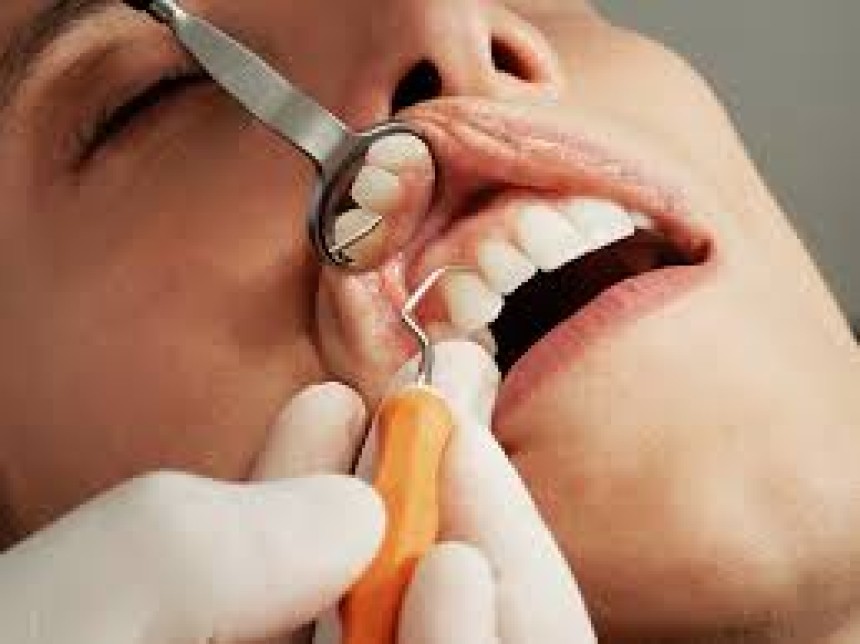
Emergency Dentist vs. Regular Dentist: Understanding the Difference
Dental emergencies can happen at any time, often without warning. Dental pain or injury can be overwhelming, whether it’s a sudden toothache, a knocked-out tooth, or a broken filling. In these stressful moments, it’s essential to understand the difference between anemergency dentist in Brooklyn and a regular dentist to know who to contact for the appropriate care.
While both types of dentists play critical roles in maintaining oral health, they specialize in different aspects of dental care. Understanding their differences can help you make the right decision when faced with a dental emergency. Here’s a breakdown of emergency dentists versus regular dentists, including when to seek their services and what each type of professional offers.
1. What Is an Emergency Dentist?
An emergency dentist is a dental professional who specializes in providing urgent care for dental problems that require immediate attention. These issues typically occur outside of regular office hours and demand quick resolution to prevent further damage or pain. Emergency dental services are often available 24/7, including weekends and holidays, and cater to urgent cases that can’t wait until the next available appointment.
Emergency dentists are trained to handle a wide range of unexpected dental issues, including:
- Severe toothaches: Intense, sudden pain caused by infection, decay, or injury.
- Knocked-out or loose teeth: Accidents or sports-related injuries that result in lost or displaced teeth.
- Fractured teeth: Broken or cracked teeth that expose the inner pulp or nerves.
- Abscesses: Infections that cause swelling, pain, and sometimes fever, signaling a more severe underlying problem.
- Bleeding gums: Excessive bleeding that could indicate serious issues like gum disease or trauma.
Emergency dentists can often provide pain relief, temporary fixes, and solutions that stabilize the situation until you can follow up with your regular dentist for more permanent treatment.
2. What Is a Regular Dentist?
A regular dentist, also known as a general or family dentist, is a dental professional who focuses on routine and preventive care. They are typically your first point of contact for check-ups, cleanings, and ongoing dental health management. They provide long-term oral care and are skilled in treating a wide range of non-emergency dental conditions.
Regular dental services typically include:
- Routine check-ups and cleanings: Regular visits for exams, cleaning, and monitoring of your oral health.
- Preventative care: Treatments such as fluoride applications, dental sealants, and education on proper oral hygiene to prevent future problems.
- Fillings and restorations: Treating cavities, applying fillings, and restoring damaged teeth.
- Crowns and bridges: Restoring damaged or missing teeth with crowns, bridges, or dentures.
- Cosmetic dentistry: Procedures like teeth whitening, veneers, and bonding to enhance the appearance of your smile.
Unlike emergency dentists, regular dentists typically work during regular business hours and schedule appointments in advance. They are the go-to professionals for maintaining long-term oral health and addressing routine dental issues.
3. Key Differences Between Emergency and Regular Dentists
Availability:
One of the most significant differences between emergency and regular dentists is availability. Emergency dentists are available for immediate, urgent care and typically operate outside of regular office hours. They are equipped to handle dental issues that require prompt attention to prevent further complications. On the other hand, regular dentists usually operate during normal business hours, making them the best choice for scheduled visits and preventive care.
Scope of Care:
Emergency dentists handle urgent and acute problems that demand quick resolution, such as pain management and stabilizing the condition. They provide temporary or emergency solutions to alleviate discomfort and address immediate risks. However, regular dentists focus on ongoing dental care, offering comprehensive treatments like routine exams, fillings, and preventive measures to maintain oral health.
Treatment Approach:
In an emergency, the treatment an emergency dentist provides is often aimed at managing pain, preventing infection, and minimizing damage. After stabilizing the issue, the patient may be referred to a regular dentist for follow-up care and long-term solutions. Regular dentists, however, focus on preventative care and addressing dental problems in a planned manner, typically over multiple visits if necessary.
4. When Should You See an Emergency Dentist?
You should seek an emergency dentist when you experience a dental issue requiring immediate attention. Common situations include:
- Severe pain that cannot be managed with over-the-counter pain relievers.
- A knocked-out or loose tooth, which may require immediate re-implantation or splinting.
- Severe infection or abscess, especially if accompanied by fever or swelling.
- Trauma to the mouth that results in bleeding, fractured teeth, or exposed nerves.
Delaying treatment in cases like these can lead to more serious problems, including tooth loss, infection, or permanent damage. Emergency dentist in Brooklyn is trained to manage these situations quickly and efficiently.
5. When Should You See a Regular Dentist?
For non-urgent issues, routine visits to your regular dentist are necessary. You should schedule an appointment with a general dentist if:
- You need a routine check-up or cleaning.
- You have a minor toothache or discomfort that has persisted for a few days.
- You need cosmetic treatments like whitening or veneers.
- You have an ongoing issue, such as a cavity, that can be treated with restorative procedures.
Regular dentist visits are also crucial for preventive care, including preventing cavities, gum disease, and other long-term oral health problems.
Conclusion
Understanding the difference between an emergency dentist and a regular dentist can make all the difference in how quickly you receive the appropriate care. Emergency dentists provide immediate attention during urgent situations, while regular dentists focus on routine care, preventive treatment, and long-term oral health management. Knowing when to seek each type of dental professional can help ensure that you or your loved ones receive the right care at the right time.





